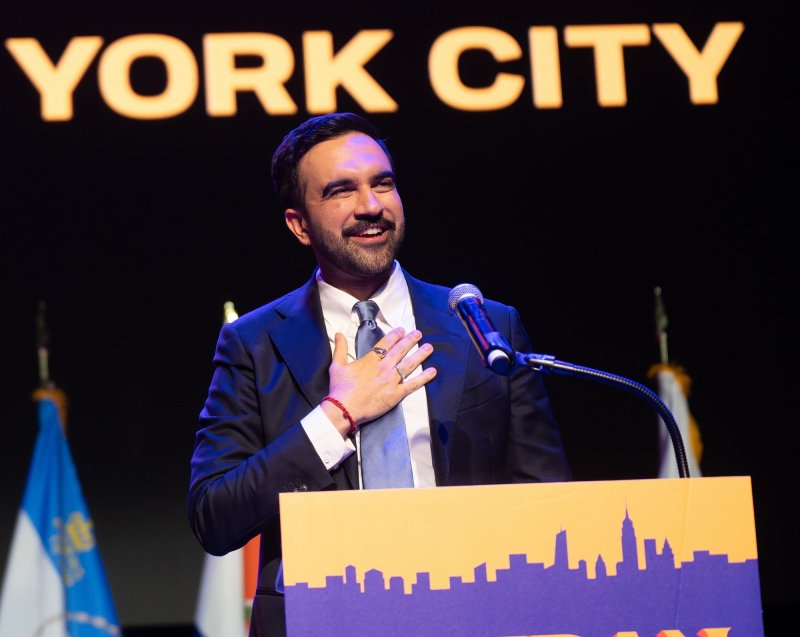BY MOSHE HILL OPINION COLUMNS JULY 17 2024
On the first day of the Republican National Convention, shortly after officially receiving the Republican nomination for President of the United States, former President Donald Trump chose junior Senator J.D. Vance of Ohio to be his running mate. It’s a pick that shows both the confidence of the Trump campaign and the potential longevity of the MAGA movement.
J.D. Vance, born James Donald Bowman on August 2, 1984, in Middletown, Ohio, has led a dynamic and multifaceted career. Raised primarily by his maternal grandparents in a working-class family, Vance’s early life was marked by his mother’s struggles with addiction and his grandparents’ union Democratic values. After his parents’ divorce, he became James David Vance. His memoir, Hillbilly Elegy, published in 2016, catapulted him into the national spotlight, offering a poignant account of his upbringing and the challenges facing the white working class.
After graduating from Middletown High School in 2003, Vance served as a Marine in Iraq, later earning a degree in political science and philosophy from Ohio State University, followed by a law degree from Yale. At Yale, Vance met Peter Thiel, who became a significant influence and supporter. Post-law school, Vance joined Thiel’s venture capital firm, Mithril Capital, and eventually founded his own firm, Narya.
Initially a vocal critic of Donald Trump during the 2016 presidential election, Vance’s political stance evolved, and by the time he ran for the US Senate in 2022, he had become a staunch Trump supporter. With significant financial backing from Thiel and endorsements from prominent figures like Don Trump Jr. and Tucker Carlson, Vance won his Senate seat.
On the issues, J.D. Vance has echoed many of the same policies that Trump has, although he does a better job articulating the reasoning behind those preferences than the former President does. While the media will claim that Vance is anti-Ukraine, for example, interviews on his position show that he, like Trump, wants to see an end to the war by setting clear off ramps for both Vladmir Putin and Volodymyr Zelenskyy, a strengthening of NATO via funding from the European member states, and a limit to the bottomless funding promised by the Democratic Party. The media, who is without nuance, claims that this is “anti-Ukraine” and “isolationist.”
Vance is certainly not isolationist on Israel. He, like Trump, firmly backs Israel and wants to empower them to defeat Hamas. As Vance has said, “Hamas started the war and now, they hide behind Palestinian civilians. So, if you want to learn the lessons of the last 40 years, the most important thing is we have to defeat Hamas as a viable military organization. You’re never going to defeat the ideology of Hamas, but you can root out those commanders, those final military-trained battalions, and I think you should empower the Israelis to do it.”
On the domestic side, Vance is well known for his strong criticism of the Biden administration, particularly how his policies have harmed the middle class. “There’s an unprecedented crisis at our southern border, we’ve got major conflicts around the world, and families all across Ohio are getting crushed by inflation,” Vance said in May. “Joe Biden’s response to all this is to give your hard-earned money away to illegal immigrants in the form of taxpayer-funded healthcare. This is a slap in the face to every hardworking American who plays by the rules, and it would never happen if Donald Trump were president.”
In June, Vance introduced the “Dismantle DEI Act” in the Senate, targeting diversity, equity, and inclusion (DEI) programs across the federal government, which have been promoted by the Biden administration. The 48-page bill aims to eliminate DEI initiatives, asserting they promote racial division and have no place in government. The bill seeks to revoke executive orders, terminate chief diversity officers, end critical race theory trainings, ban mandatory DEI pledges, and cut DEI funding for federal agencies. Vance emphasized the need to restore merit and equality in government institutions and eliminate what he describes as a divisive and wasteful DEI bureaucracy. Rep. Michael Cloud (R-TX) introduced a parallel bill in the House.
One thing that makes Vance stand further apart from most of his colleagues is not his ideology or his policy preferences – it’s his age. At 39 years old, Vance would be the second youngest Vice President ever, after John Breckenridge, VP to James Buchanan in 1857, and only slightly younger than Richard Nixon when he became VP to Dwight Eisenhower. Vance is technically a millennial, which marks a significant passing of the torch from the 77-year-old Trump.
This cuts both ways, as Vance does not have the political experience most have when running for this high office. Vance has not been in the Senate for two years, and that was his first position in government. While his ideology and policy preferences are sound, and his personal life experience far exceeds the average millennial, he is still shy of the experience that many look for when running for the Vice Presidency.
Vance also is far more controversial than the other potential VP choices were. Vance has said many things about Trump in 2016, none of which were too kind. The media will focus on what he said back then as opposed to asking what happened between then and now to create such a turnaround in his outlook of Trump. Vance also is more outspoken, thus liable to have more attacks levied against him. Already, within hours of being selected, the “Worse than Trump” attacks have begun.
That being said, Vance is an excellent pick for Donald Trump. In the wake of the assassination attempt, Trump is not just looking for someone who can shore up votes in swing states, but someone who can carry the mantle of the movement he started when he descended the escalator in Trump Tower in 2015. That movement is based on appeal to blue collar workers and strong America First foreign policy, both in trade and military dominance. If they win, that movement will be around for at least another generation.



